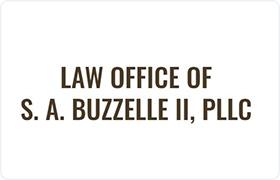Fort Mcdowell Collection Lawyer, Arizona
Sponsored Law Firm
-
 x
x

Click For More Info:
-
Law Office of S.A. Buzzelle II, PLLC
14050 N 83rd Avenue Suite 290 Peoria, AZ 85381» view mapBankruptcy & Debt Law Your Trusted Bankruptcy Attorney
If you are in need of legal services for matters relating to bankruptcy and divorce, rely on Law Office of S. A. Buzzelle II, PLLC in Peoria, AZ.
800-873-4991
Brad A Denton
✓ VERIFIEDEmployment, Lawsuit & Dispute, Business, Real Estate, Collection
Brad represents primarily small businesses, and so he practices primarily in the areas of law that small businesses need. As a practical matter, Brad ... (more)
Michael J. Fuller
✓ VERIFIEDEstate, Collection, Business, Contract, Litigation
In 1988, I started my own firm without any clients but with a steadfast commitment to practice law consistent with my own ideals and personality. I tr... (more)
Tyler Michael William Allen
Commercial Real Estate, Criminal, Collection, Wrongful Death
Status: In Good Standing Licensed: 11 Years
Taylor William Tondevold
Construction, Corporate, Contract, Collection
Status: In Good Standing Licensed: 8 Years
Robert P Jarvis
Other, Motor Vehicle, Criminal, Collection
Status: In Good Standing Licensed: 33 Years
Clint G Goodman
Commercial Real Estate, Real Estate, Lawsuit & Dispute, Collection
Status: In Good Standing Licensed: 19 Years
Clint G Goodman
Commercial Real Estate, Lawsuit & Dispute, Family Law, Collection
Status: In Good Standing Licensed: 19 Years
Clint G Goodman
Commercial Real Estate, Real Estate, Lawsuit & Dispute, Collection
Status: In Good Standing Licensed: 19 Years
Charles B Sellers
Commercial Real Estate, Litigation, Trade Associations, Collection
Status: In Good Standing Licensed: 16 Years
 Stanley A. Buzzelle II Peoria, AZ
Stanley A. Buzzelle II Peoria, AZ Practice AreasExpertise
Practice AreasExpertise


